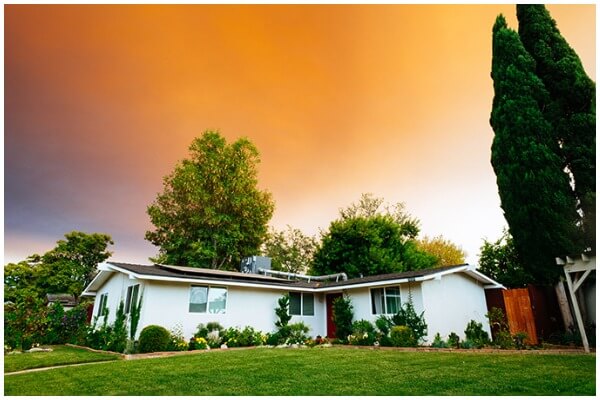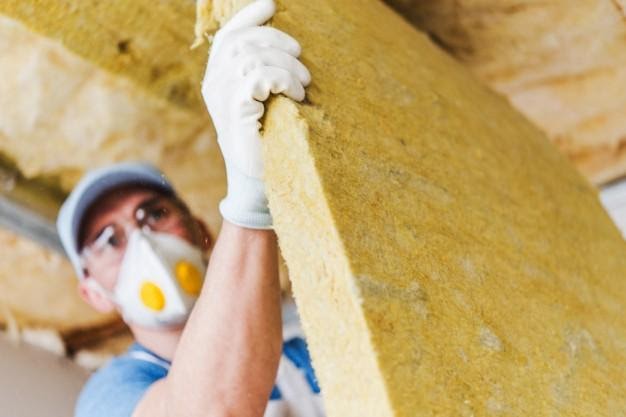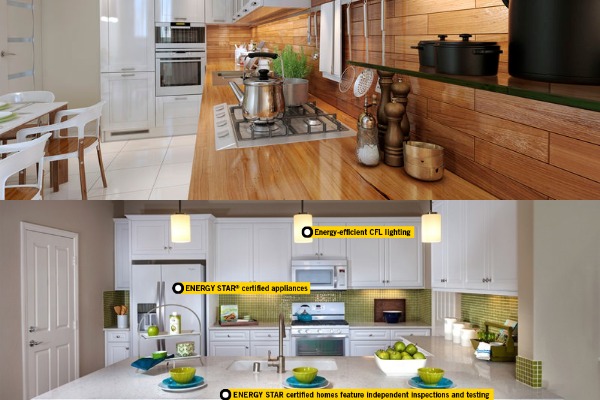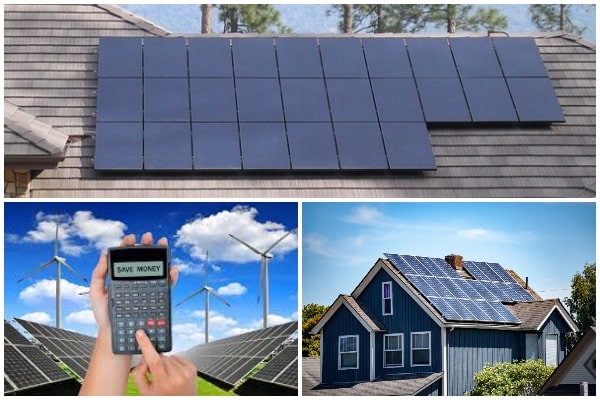If you’re finding yourself more and more preoccupied with the environment these days, you’re far from alone. Sustainability has become a major post-pandemic trend, with many of us reconsidering how our choices affect the world around us.
Of course, if you’re researching sustainability, you may have come across several eco-friendly terms, like “energy efficiency,” that explains how we impact the environment. But what is energy efficiency, anyway, and is it a practice you can actually adopt in your home? If you’re not sure where to start, here’s what you should know.

What Is Energy Efficiency?
In its simplest definition, energy efficiency is a measure of how much energy we use to do everyday tasks. From lighting our workspaces to getting from point A to B, energy efficiency helps us avoid adding pollution and wasting energy as we move through the world. It’s an important consumer strategy to minimize the effects of climate change.
As a side benefit, energy-efficient designs tend to translate into cost efficiency as well. By lowering energy costs, energy efficiency helps us keep more money in our wallets.
Given the clear advantages of energy efficiency, you’re probably wondering how this strategy can translate into your everyday life. Fortunately, there are a few simple ways to make your home more energy-efficient.
Also Read: How Do I Know I’m Getting an Energy-Efficient Home?
1. Insulate Your Home

Air conditioning is a huge energy expense—up to 6% of all the electricity produced in America, according to the U.S. Department of Energy. Though the process is necessary given seasonal extreme temperatures, it’s important to make sure we reap all of the benefits of that conditioned air by keeping it indoors where it belongs.
That’s where proper home insulation comes in. Insulating critical areas like your attic, loft, basement, and other areas can help you reduce the amount of conditioned air you lose. This, in turn, means that you’re making the most of all of the energy that goes toward keeping your home comfortable.
Also Read: Top Reasons Why Installing Insulation Is Good For Your Home
2. Test Your Windows and Doors
In a similar vein, you’ll want to check the seal around your windows and doors as well. Allowing air to escape through cracks around these points will waste energy in the long run, so do yourself a favor by checking for drafts.
Caulk up any gaps, place weather-stripping in essential areas, and consider getting a door sweep insulator for the bottom of your door.
If you have an older home—especially one with outdated windows—you may want to consider getting an upgrade. The most energy-efficient windows will have additional coatings to reduce unwanted heat gain and loss.
A way to do this is to have your windows tinted by professionals such as Shady Biz Tinting. On top of being energy-efficient, it also adds another layer of safety to your home.
3. Try Using ENERGY STAR Appliances

If you’re in need of an appliance upgrade, you may want to consider getting an energy-efficient option that will waste less electricity in the long run.
From your dishwasher to your HVAC system, energy-efficient appliances can help you reduce your home’s energy use with little effort. The government-regulated ENERGY STAR program is a great place to start searching, especially its annual list of the most efficient products.
4. Consider Your Timing
Timing is everything when it comes to energy efficiency. Large appliances like washers, dryers, and dishwashers guzzle up a lot of energy and heat up your home—so consider their use with care. In the summer months, it may make more sense to wash clothes or dishes in the evenings to keep from heating up your home in the hot hours of the day. In the winter, doing these tasks early can help you keep your home warm.
In addition, consider your timing in terms of your home thermostat in general—or rather, invest in a smart thermostat that does the job for you! Smart thermostats can automate your home’s air conditioning by learning your habits, allowing you to reduce your energy loss without effort.
5. Opt for Solar Panels

Solar panels aren’t just a household trend; they’re a great way of making your home energy-efficient and less dependent on the local grid. These tools allow you to generate your own power using the sun’s energy, which translates to less carbon and other pollutants created to power you’re home.
Even better, U.S. homeowners can still get a tax credit for installing new solar panels, and there are several different types to choose from. For more information, look here now.
Also Read: 4 Reasons Your Small Home Should Use Solar Energy
6. Use Electronics More Responsibly
Home appliances and electronic devices consume a significant amount of your household’s energy. Considering how you use them can help you reduce your energy bills and raise your energy efficiency.
This means considering simple best practices, like shutting off computers and televisions when not in use or unplugging a charger when it’s not connected to an electronic device. In addition, many devices continue to consume power even when not in use, so it may make sense to plug these devices into a power strip that you can turn off with ease.
Also Read: Home Energy Efficiency: Reduce Your Electricity and Gas Expenses
7. Invest in an Energy Audit
If you’ve done everything else on this list—and if you’re serious about reducing your energy consumption—the best way to get personalized advice is through an energy audit. A professional auditor can check your home and tell you where there’s room for improvement, allowing you to pinpoint further strategies to try. Get in touch with a local auditor to learn more about how the process works and the costs for your home.
Alternatively, you can also invest in a home energy monitor. This is a device that helps you understand your household energy usage trends and determine where the energy is going. Plug-in and whole-house monitors are available, so decide which option is best for you.
Also Read: Soleta : Sustainable Zero Energy House
Make Your Home More Energy Efficient Today
All signs point to the fact that sustainability isn’t just a passing fad—it’s here to stay. With many Americans reconsidering the way our actions impact the world around us, it’s more important than ever to determine methods of being more responsible consumers of energy. Now that you’ve stopped wondering, “What is energy efficiency?” it’s time for you to join the growing movement!
Looking for additional insights to help you make the most of your home? Check out our other posts for more helpful guides.